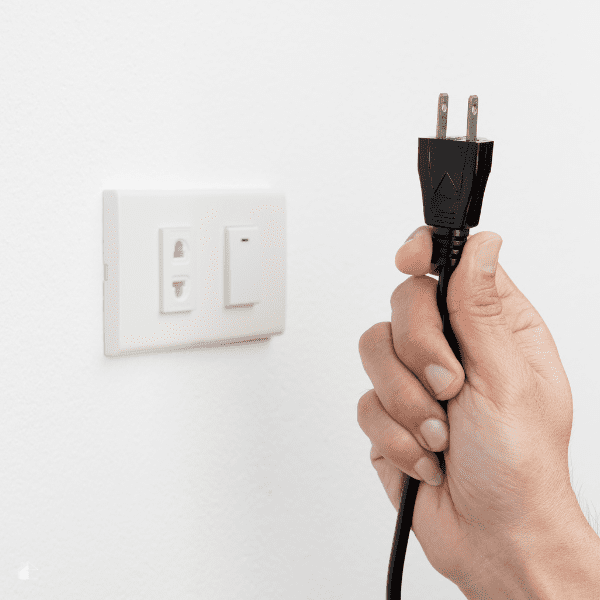6 Things You Are Not Doing That Are Costing You Money
This post may contain affiliate links which might earn us money. Please read my Disclosure and Privacy policies hereWe all want to save money, but it can be hard to know where to start. Here are six things you may not be doing that could cost you money. However, implementing just a few of these tips could help you slash your spending and put more money in your pocket.

Not creating a budget.
According to a survey by The Penny Hoarder, over 55% of Americans do not use a budget. So if you're not budgeting, now is the time to start.
Not having a budget is one of the biggest reasons people end up in debt. If you're not carefully tracking your spending and making adjustments as needed, you're likely overspending in some areas and underspending in others. This can lead to big problems down the road.
For example, let's say you consistently spend more than you earn monthly. At some point, you'll start to rack up credit card debt. And if you don't address the problem, that debt will only continue to grow. In fact, by not creating a budget, you could be setting yourself up for a lifetime of debt slavery.
But it's not just credit card debt that can cause problems. Not having a budget can also lead to issues with your mortgage, car payments, and other major purchases.
So what can you do to avoid these problems? The first step is to create a budget. This involves tracking your income and expenses and making adjustments as needed. There are several different ways to do this, but here are three essential steps:
- Track your spending for at least one month. This will give you an idea of where your money is going each month.
- Identify your priorities. What are the essential things in your life? Then, make sure your budget reflects these priorities.
- Make adjustments as needed. If you're overspending in one area, make adjustments in other regions until your budget balances out.
It's not always easy to create a budget, but it's worth it in the long run. By taking the time to create a budget now, you can avoid many of the financial problems that come with not having one.
You are not insulating your home correctly.
As the seasons change, you may find that your energy bills are getting higher and higher. This is likely because your home is not properly insulated. If you don't take steps to insulate your home, you will spend more money in the future.
An example of why not having a properly insulated home will cost more is that without insulation, your home will lose heat in the winter and gain heat in the summer. This will cause your energy bills to be much higher than they need to be.
To ensure your home is adequately protected, you should seal all cracks and gaps in the exterior walls and roof. You should also install insulation in the attic, walls, and basement. By taking these steps, you can protect your home from losing heat or cooling air.
Why are these steps so necessary? Insulation helps keep your home at a consistent temperature, which can help you save money on your energy bills. In addition, proper insulation can help protect your home against inflation. As energy prices continue to rise, having a properly insulated home will help you avoid spending more money on your energy bills.
Not taking advantage of employer benefits.
When you don't take advantage of employer benefits, you leave money on the table. For example, if your employer offers a 401k plan with a match, you're missing out on free money if you don't contribute. The same is true for health insurance and other benefits.
By not taking advantage of employer benefits, you're also putting yourself at risk for future financial problems. For example, you could have a substantial medical bill if something happens and you don't have health insurance. In addition, if you lose your job, you'll have a more challenging time finding new employment if you don't have a solid benefits package.
The best way to ensure you take advantage of employer benefits is to read up on what's available and talk to your HR department. They can help you determine which benefits are best for you and how to enroll. Taking advantage of these benefits is essential because they can help protect you financially in the future.
You might enjoy these posts:
Paying unnecessary fees.
Unnecessary fees can cost you a lot of money in the long run. What are unnecessary fees? They're charges you don't need to pay, but you may not even realize they exist.
For example, many banks charge a monthly service fee. This is a fee you pay just for having an account with the bank. So you could be paying two separate fees if you have a checking and savings account.
Other common fees include ATM, late payment, and annual credit card fees. These are all fees that you can avoid if you're careful.
To avoid paying unnecessary fees, take the time to read over your bank statements and credit card bills. Look for any charges that you don't understand or that seem high. If you see a fee that you think is unnecessary, call the company and ask about it. You may be able to get the fee waived or lowered.
It's also a good idea to shop for a new bank or credit card if you're being charged too many fees. There are plenty of financial institutions out there that don't charge unnecessary fees. You can save a lot of money by switching to one of these companies.
Not taking the time to check up on your monthly bills.
Bills are the lifeblood of our financial stability. So whether it is the mortgage, the utilities, or the credit card statement, we need to be vigilant in reviewing our monthly bills.
The first reason is that mistakes can and do happen. The second reason is that some companies will change your bill without notifying you, and you may not even realize it until it is too late. Finally, by checking your bills every month, you can spot any red flags that may indicate that you are being overcharged or that there is an issue with your account.
The steps to checking on your monthly bills are simple. First, gather all your monthly bills and lay them before you.
Next, review each bill individually and compare it to your expectations based on your budget or past statements. If everything looks correct, move on to the next bill.
If there are any discrepancies, take the time to call the company and ask about them. Finally, make sure to save all of your statements for future reference.
You are doing yourself a great disservice by not checking on your monthly bills. It could cost you money in overcharges, missed opportunities for discounts or credits, or even late fees. Checking your monthly bills is a quick and easy way to ensure that everything is as it should be and that you are staying on track with your budget.

Not unplugging unused appliances.
So, if you have a few electronic devices around your house that you are not using, make sure to unplug them to save money on your electricity bill.
When you have appliances plugged in that are not being used, they are still using electricity. This costs you money every year, whether you realize it or not. The cost of leaving electronics plugged in when they are not in use is about $100 each year.







Hey Joyce,
Thanks for the reminder! I agree, there are plenty of things we don’t do that cost us money. Right on point with not planning for expenses, big and small; and shopping without a list. In addition to taking the time to check up on monthly bills, we should also take the time to check up on our banking services. Banks can also add fees to accounts and services, as well as decrease the amount of interest you earn on savings accounts. With all the online banking available today, it’s quick and easy to check up on our own banks and shop for better and more competitive rates and services elsewhere.
One thing that we always do but never follow was our shopping list. Every time we either go grocery shopping or go to the mall my wife always maintain a list on her note pad (cell phone). Unfortunately, I could not remember a time when we really strictly follow this list. We always ended up buying more. Ouch